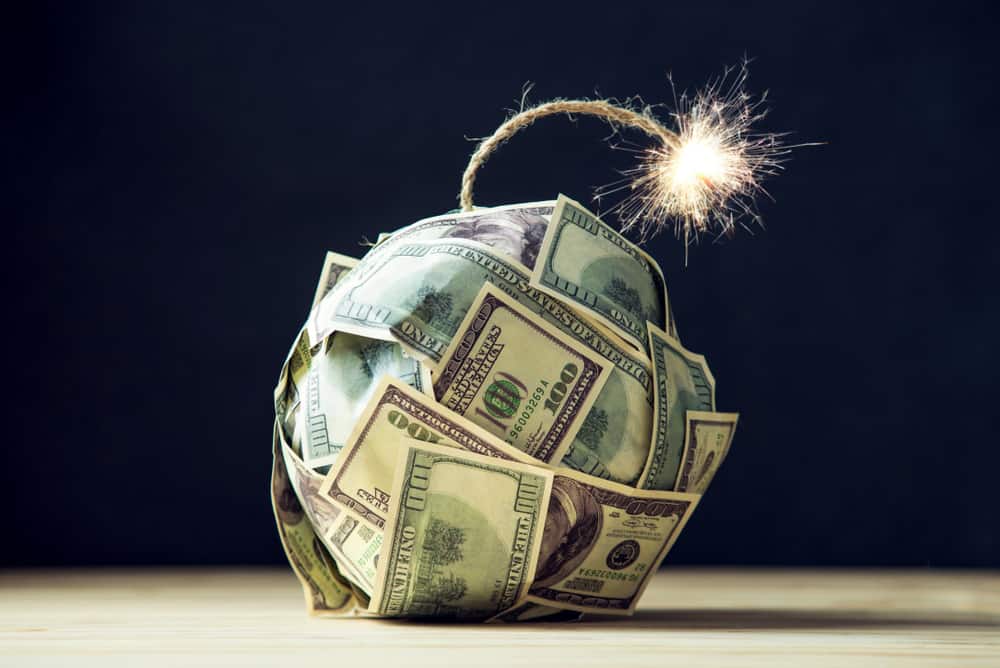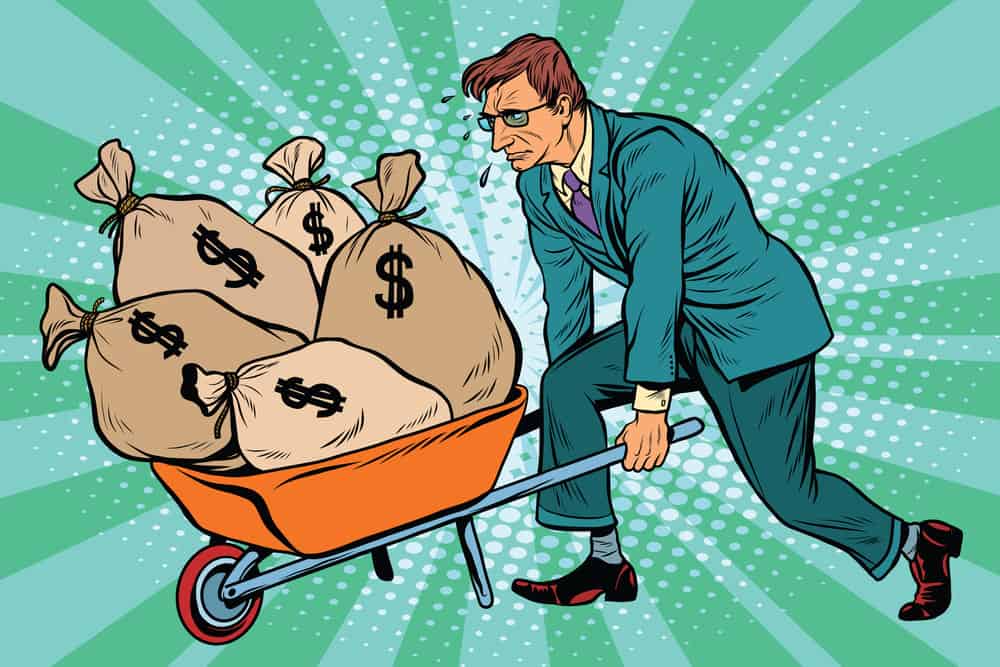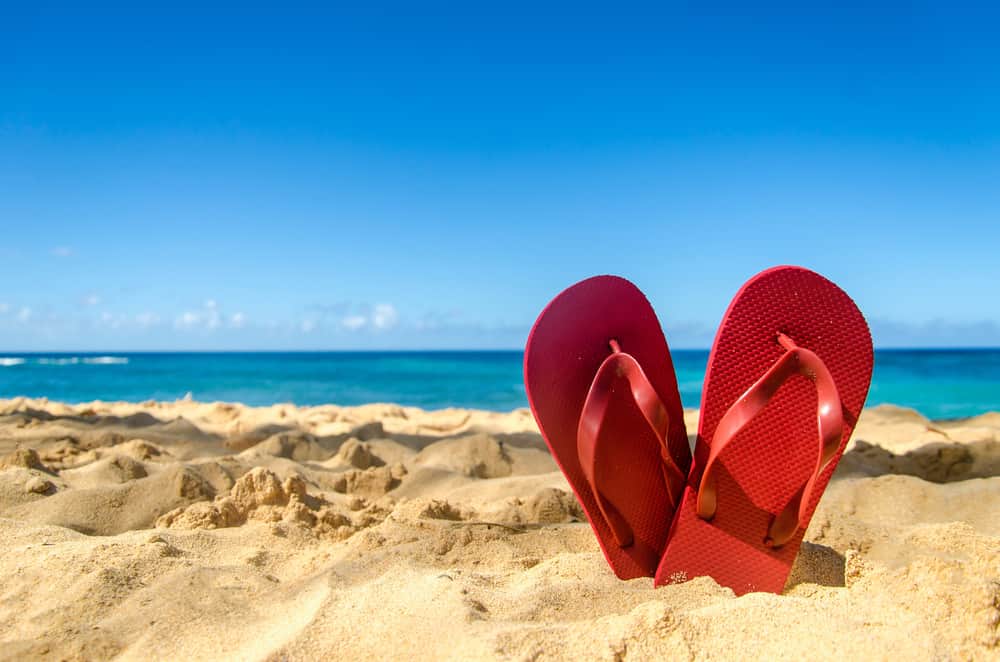If you want something done right, do it yourself.
This is my view toward web properties.
I’m extremely gun-shy when it comes to buying existing niche sites for several reasons (which I set out below).
In all the years I’ve been online (full time since 2012) I’ve bought only one existing site.
Fortunately, I’ve not encountered any problems with the site I purchased and it’s turned out to be a decent investment (no regrets) but knowing what I know now, I probably wouldn’t have bought it.
Here are the reasons I don’t like buying existing websites.
Read my few reasons when it makes sense to buy an existing website here.
Copyright horror show
The copyright trolls are active as ever. They wind up their troll software that scans the web looking for their clients’ images (and perhaps other media). When the software strikes a hit, they blast out claims for infringement. Claims can be $1,000+ per infringement. If you have a site with hundreds of images that infringe, do the math. It’s frightening.
It’s then up to the publisher to prove they have a license or permission. If you fail to do so and refuse to pay, the trolls sic their lawyers who start blasting out lawsuits in court. That’s when the real horror begins. If you thought the original claim for damages was bad, wait until you see the claims in a lawsuit which will include punitive damages, lawyer fees, etc. That’s not to say they will win or collect all they claim, but you have to go defend.
Yeah, it’s an ugly scenario; a scenario I prefer to avoid.
I avoid it by starting my sites from scratch and use either Shutterstock photos or photos to which I have written permission to use.
When you buy a site, unless the seller provides you evidence that all images are used without infringing copyright (something you definitely want to ask for), you could get nailed down the road. As publisher, you’re on the hook. Even if the seller represents to you pre-sale that all images do not infringe copyright, good luck collecting from them. There are legal processes for hauling them into lawsuits as a third party, but that still means you pay thousands for lawyer fees.
Moral of the story – I prefer building my sites from scratch and avoiding any potential copyright problems that could arise from buying a website.
Here’s my article on Shutterstock image licensing upon website sale.
SEO time bomb
This is less of a problem than it was in the few years after the first Google Penguin algo update hammered the world in 2012, but it’s still an issue.
After the first Google Penguin hit, many folks whose sites were penalized in search tried selling their sites. They were worthless. They tried selling for years. I’m sure some unsuspecting buyers bought them only to discover they were cooked and no matter what they did the sites never rebounded. That said, some folks who are skilled at getting penalties removed probably made millions buying at distressed prices and resurrecting dead sites.
Unnatural link building is still alive and well though. Many sites grow and have great traffic as a result but they are an SEO time bomb. You the unsuspecting buyer who can’t tell a good link from bad, pay top dollar based on huge traffic and revenue only to have the site get penalized or downgraded in a future Google update. Your investment goes up in smoke.
That’s not to say my sites are bulletproof from Google algo updates. They are as vulnerable to any site, but at least I know my sites don’t have any unnatural links built to them because I don’t do link building. I prefer to be patient and attract links naturally. While risk is present, it’s lower.
Yes, a seller may tell you they didn’t do any spammy link building, but unless you know what to look for, you can’t count on it. It’s up to you to figure it out. I’m not an off-site SEO guy and have no idea what to look for.
Amazon TOS nightmare
If you buy a site with decent Amazon affiliate revenue, unless you scour every page on the site, you might not notice that the site infringed Amazon TOS. Amazon is prickly about affiliates adhering to its TOS. They ban sites and close accounts out of the blue. If you’re lucky, you get a warning and time to clean it up.
If you pay for the site based on Amazon affiliate commish and you lose that revenue stream, you lose money.
Cooked domains
I’ve now registered two domains that were previously registered and subsequently cooked in Google’s eyes. I did not do my due diligence. I was naive. I registered them thinking they were new registrations.
No matter what I did to those sites, traffic remained at zero. I know how to grow niche site traffic so when nothing was happening after several months, I knew something was wrong.
I bring this up because you might consider buying a relatively new site with content which may look great on the surface, but it’s built with a cooked domain.
You definitely want to check the history of the domain in Wayback machine. These days I check every prospective domain in Wayback machine. If it was a website in the past, I don’t register it.
It’s a drag
Vetting sites is a drag. I loathe doing due diligence. I don’t want to scan hundreds of articles to ensure it’s good content that doesn’t violate any affiliate merchant or infringes copyright. I can’t think of a worse way to spend my day. Actually, I could, but vetting sites is definitely not something I want to spend time doing.
That said, I totally get how some people could enjoy vetting sites looking for good opportunities. It’s akin to doing any kind of investment research such as buying stocks, real estate, etc. For some folks, that’s thrilling stuff. If you’re prepared to do thorough due diligence and wade through dozens or hundreds of stinkers looking for that winner, go for it. You can make out like a bandit.
Another drag is executing the sale and transfer. I know this is minor, but transferring sites and getting them onboarded into hosting, Cloudflare and all that is a total drag. Chances are I’d want to swap the theme, tweak the plugins, etc. While I can do most of this blindfolded, I don’t like doing it and I’m at the stage where I avoid doing things I don’t like.
No recourse
Caveat emptor reigns supreme in the world of buying websites. Once your money flows out of escrow, it’s gone. If something goes wrong, good luck getting your $100K back. You can sue all you like, but that’s no picnic. Even if you win, collecting the money is another matter.
After all, it’s not beyond the realm of possibility that the seller you hand over your $100K to for the site goes out and blows the $100K on a Beemer, drives it into the ground inside 6 months and ends up broke. How do you collect money from that person? All the court judgments in the world won’t get you the money. If lucky, you get a used Beemer that billows smoke.
I prefer creating over rehabilitating
My aversion to buying existing sites also stems from personality. I prefer creating from nothing and building up rather than spending time rehabilitating. When you buy a site, chances are you’ll want to put time into rehabilitating it or at the very least making some changes. I’m not really into doing that. I get more of a thrill building something from scratch. No rhyme or reason.
Am I paranoid?
Maybe. Maybe I’m missing out. I probably am, but I’m okay with that. I’m happy with my portfolio of sites slowly growing traffic and in value. I’ll stay the course.
Fact is many site buyers have done exceedingly well buying sites. The problems I set out above are not likely, merely possible. It’s the “possibility” that I don’t like.
Imagine spending $100,000 on a site, which isn’t hard to do and then watching traffic and revenue plummet by 50% and/or getting a $50,000 copyright infringement claim. Yikes. These are events that cause bankruptcy.
Will I never buy an existing site?
I can’t say never. Never say never. I may find a site that meets my criteria that’s a good fit for my portfolio. Currently, I’m not looking. I prefer launching sites myself and waiting it out for them to start making money. This way I know they’re built the way I want them built.
Another reason I’d consider buying a site is for a quick RPM bump win. If I noticed a site with decent traffic badly monetized, especially if badly monetized with ads, that could be a great opportunity for me because I could immediately onboard with AdThrive which could increase the RPM overnight. That would immediately increase its value which could be a great return.
Nevertheless, despite there probably being some good opportunities out there, I prefer working on my sites built from scratch. The more they grow and earn, the more valuable they become.
What about “aged sites” from the aged site factories?
There are a few reputable outfits that launch sites, age them and then sell them for $1,000 to $3,000. Are these okay?
Yeah, they’re less of a risk as long as you’re happy with the content. Usually these sites don’t have much content so you can vet the content quickly.
Be sure to ask if they did any link building. If they did, I’d avoid it.
Also ask about image copyright. Chances are these outfits have the proper licenses which is good. Get it in writing (email will suffice).
Finally, check the domain in Wayback machine to ensure it wasn’t a site in another life.
If all this passes muster, buy it if you like the niche. Because it’s aged, it could grow faster if you’re the type that doesn’t like to wait.
Me? I still prefer waiting but I can afford to.
Does this mean you should never buy an existing site?
Absolutely not. There are good reasons to buy an existing site. There are pure gems out there that have spectacular potential and/or are under-monetized. If you find them, you can enjoy a great ROI quickly.
What’s important is that you do your due diligence before pulling the trigger. Caveat emptor!
Read my few reasons when it makes sense to buy an existing website here.

Jon Dykstra is a six figure niche site creator with 10+ years of experience. His willingness to openly share his wins and losses in the email newsletter he publishes has made him a go-to source of guidance and motivation for many. His popular “Niche site profits” course has helped thousands follow his footsteps in creating simple niche sites that earn big.







Jon, You are going to get some flack from website brokers. But thanks for raising these valid points that not many are talking about. Google keeps on changing rules for what counts as spammy link building and Amazon’s dominance in the e-commerce world makes them a go to for affiliate partnership for most site owners. Doing anything to upset these giants can kill your site instantly. And imagine having spent a good chunk of money on a site assuming everything was clear and then getting your site penalized in SERPs or getting banned by Amazon!
What’s your opinion on buying starter sites or done for you affiliate sites?
Hey Brad, I’m not sure website brokers will notice since I’m just a small fish in a big pond but c’est la vie. I can only write stuff the way I see it. I think buying sites is perfectly fine as long as you take the time to properly vet them. Most folks don’t know what to look for (including me) and/or don’t take the time to properly vet sites. While 99% of the time nothing goes wrong, when it does go bad, someone loses their shirt.
Starter sites: I think they’re okay if you get it in writing they didn’t build lousy links, you like the content on them and the domain is a clean registration. If not a clean domain registration, you need to know what to look for to ensure it’s not cooked.
I did this and it paid off big time for me now. I have bought a website in a home improvement niche with really flat and poor content off one lady who had this blog as a support for her offline business. She has sold it to me for $300, and I have seen the potential because despite having really poor content, it was ranking extremely well.
She hasn’t built any links to it and wanted to get rid of it. I bought it off and it was untouched in my inventory for over 2 years. The website is dated back to 2015, I have bought it in 2018 and started to work on it in February 2020. After first 5 articles, I have noticed that they are ranking really well, so I pressed the gas pedal and pushed a lot of content since April.
Right now, I have daily traffic 1,8k organic when in March it was 120 for the month and keeps climbing. I think if I keep pushing the content I have prepped (planned until the end of Dec) and improve monetization, by Christmas I can reach 3k traffic and full-time income for me.
But I get your points here and I suppose it will depend on various factors.
Wow!!!!
You are really going about this whole niche thingy the best way upwards.
lovey post . This Post is very very helpfull for me.